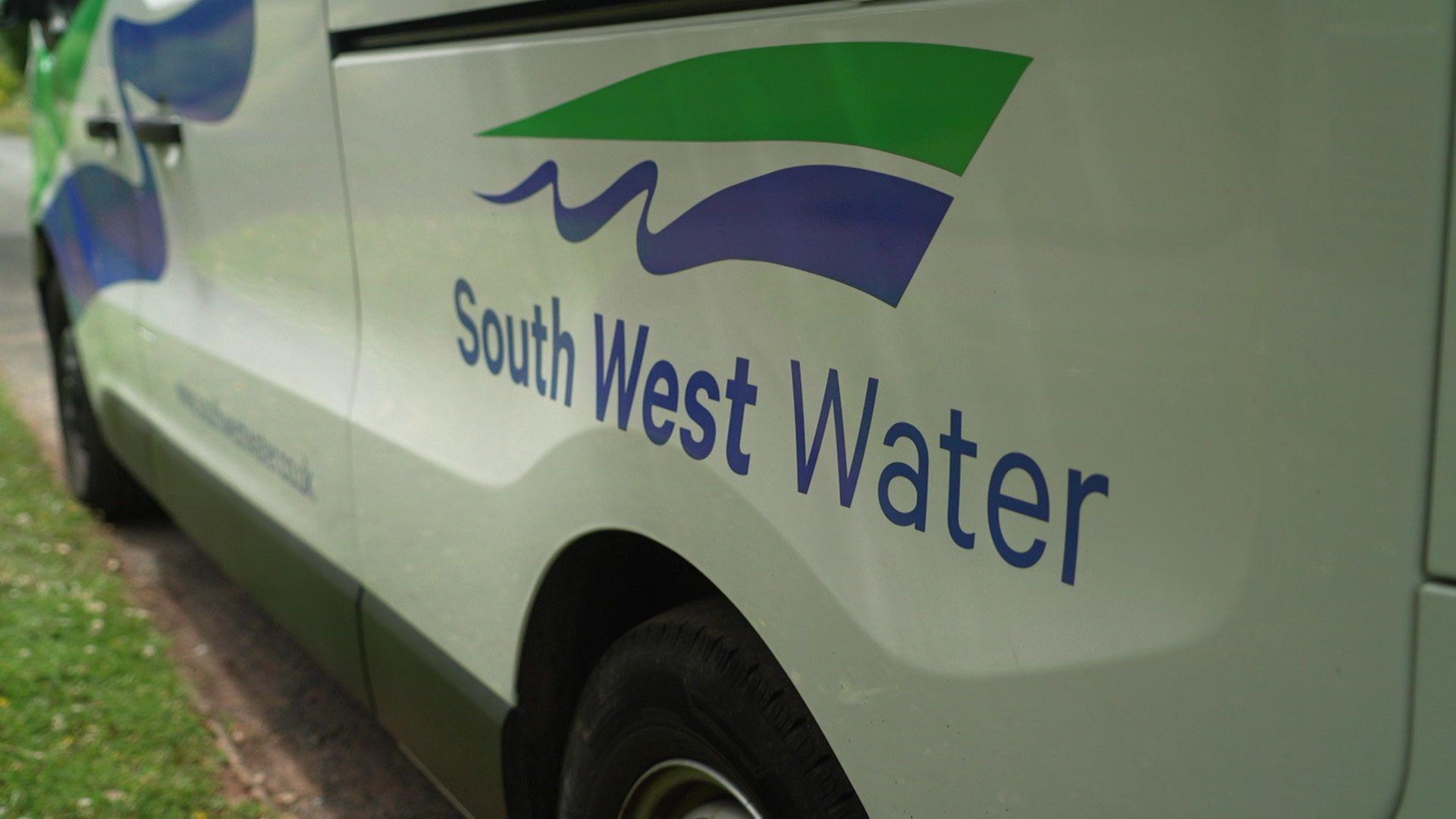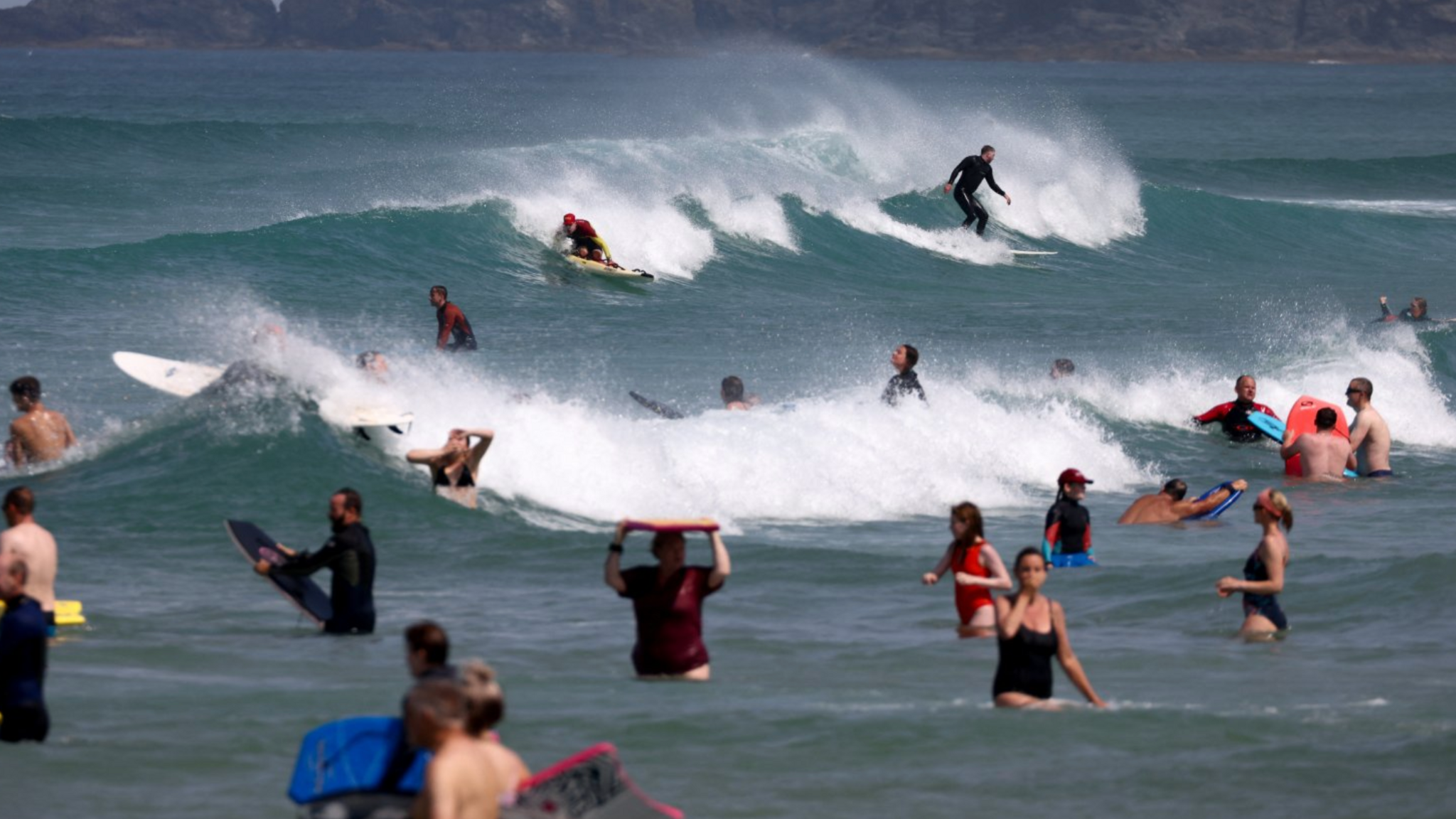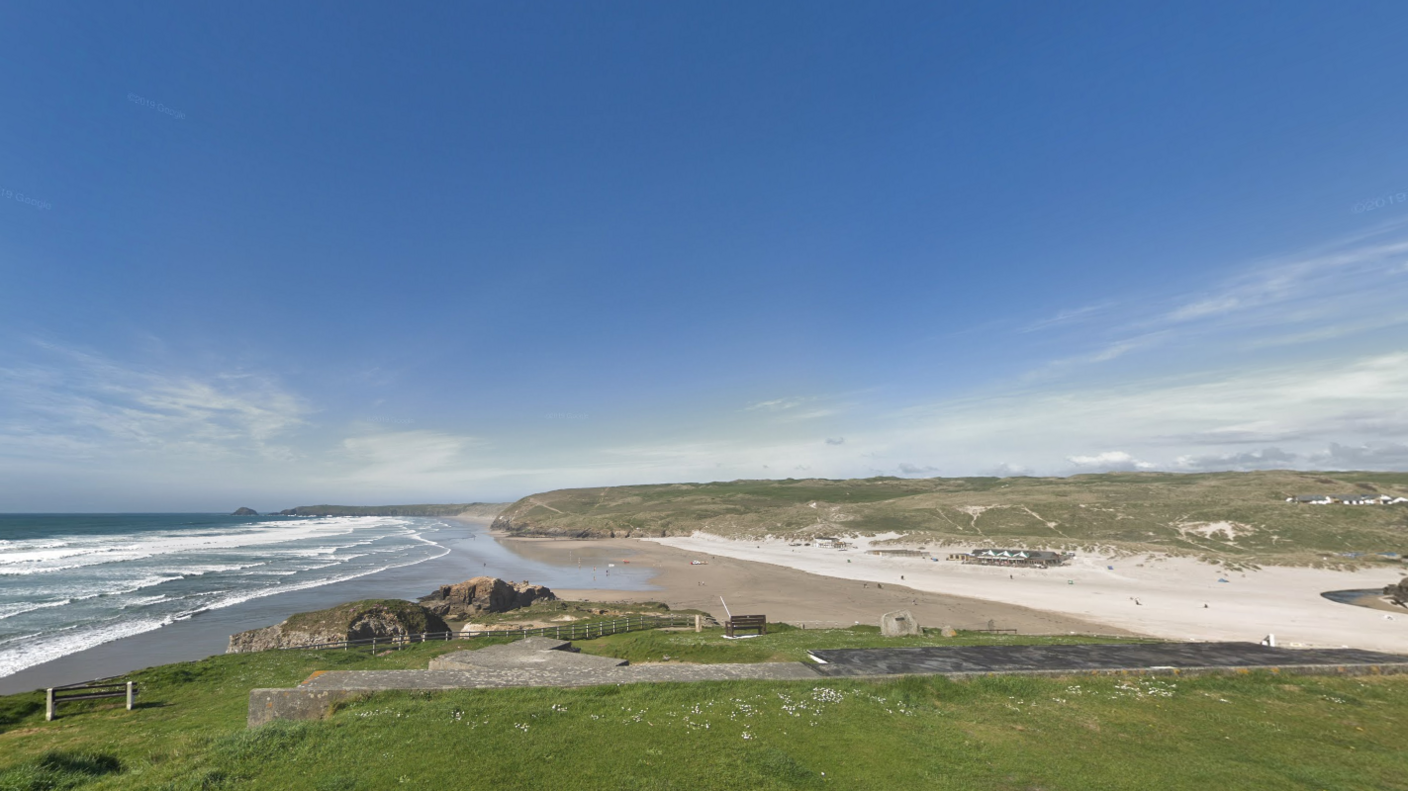Swimmers suggest brown flags to show polluted sea

Zoe Woodward said she thought flags would help inform visitors who did not check mobile apps about water quality
- Published
Sea swimmers have suggested brown flags could be used on beaches to indicate pollution in the water.
Members of the Bluetits sea swimming group said the flags would be especially useful to tourists who may not know how to check the water quality at beaches they visit.
Janet Shephard, who regularly swims at Perranporth in Cornwall, said: "We get red flags if you can't see because of the sea conditions and I think we need brown flags for pollution."
The Environment Agency has awarded Perranporth, external an "excellent" grading for bathing water quality for the past four years as a result of its regular testing system.

Some of the Bluetits sea swimming group suggested a brown flag scheme to indicate poor water quality
Fellow Bluetit swimmer Zoe Woodward said France operated a system where purple flags were used to show poor water quality and she thought it was a "brilliant idea".
She said: "For people who are on holiday here and aren't aware to check the apps, to see that visual on the beach, I think it'd be a good idea to make people think."
In 2024, South West Water (SWW) recorded 56,000 sewage spills into the sea and rivers in the region it operated in.
It provides water and sewerage services to about 1.8 million customers in Devon and Cornwall, the Isles of Scilly, plus parts of Dorset and Somerset.
A SWW spokesperson said: "Our storm overflow at Perranporth has not been active in 2025.
"There are many other factors that can impact bathing water quality.
"These factors include agricultural run-off from fields."
Another regular sea swimmer, Martha Marshall-Clack, said she frequently received pollution alerts for Perranporth on her phone.
She said: "If there's an alert, then we're not going in because it's too risky.
"I know a lot of people will say: 'Just keep your mouth shut and keep your head out of the water,' but you want to be safe.
"We really enjoy going in the water... hearing the pinging of the alerts that you can't do that, it's just terrible in this day and age - it's just not acceptable."
A spokesperson for the Environment Agency (EA) said its bathing water classifications were in place "to give clear, reliable advice to bathers".
The classifications gave a long-term assessment of water quality over a four-year period, and, as bathing water quality could change daily, shorter-term assessments alone would not provide an accurate overall picture, they added.
They said when daily fluctuations in water quality occurred from weather or tide, the EA issued pollution risk forecasts at sites where it was possible to do so.
In addition to the annual classification, results of tests throughout the bathing season were available for more than 400 bathing waters on the Swimfo webpage, external, the EA added.

Sarah Walsh said she could not risk taking clients swimming when water quality was poor
Sarah Walsh runs a sea swimming business and said she was often affected by poor water quality.
She said: "If there's been an alert, I cannot take people swimming in case anyone gets poorly and people might have an underlying health condition."
Ms Shephard said water pollution "has gone on for far, far too long".
She said: "I just really would like to go into the water without not just checking the tides and the sea conditions, but checking whether there's been an alert for sewage.
"If I bring my dog to the beach and I don't pick up after them, I can be fined £1,000 and be held personally accountable for that. But you can discharge sewage into the sea and that's too difficult to deal with?"
On Sunday, Environment Secretary Steve Reed pledged the number of times sewage was discharged by water companies would be halved by 2030.
Follow BBC Cornwall on X, external, Facebook, external and Instagram, external. Send your story ideas to spotlight@bbc.co.uk, external.
Related topics
- Published10 July

- Published17 May

- Published15 May

- Published7 January 2024
